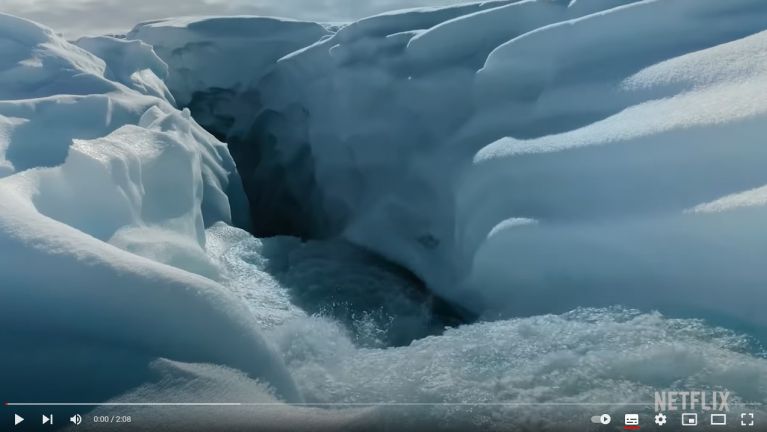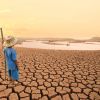If ecosystems collapse
The impacts of climate change are his specialist field: Johan Rockström outlines the security risks that global warming holds.

How do extreme weather events arise? And what influence do they have on international security? Johan Rockström, Director of the Potsdam Institute for Climate Impact Research (PIK) and Professor for Earth System Science at the University of Potsdam, explains the effects of global climate change.
Mr Rockström, why are extreme weather events increasingly occurring as a result of global warming?
Temperatures are rising worldwide because of global warming. As a result, more water is evaporating and entering the atmosphere. This increases the amount of energy in the atmosphere. More energy also means more frequent extreme events. The results are worldwide weather changes, increased precipitation and higher temperatures. To sum up, there is a rise in the number of extreme weather events, such as droughts or flooding.
If we carry on as we have in the past, we will already reach 1.5 degrees in a little over 20 years.
What will happen if global warming increases beyond the Paris climate goal of 1.5 degrees by the end of the century?
We have already reached 1.2 degrees of warming today. That’s the highest temperature since the last ice age – in other words, in over 10,000 years. If we carry on as we have in the past, we will already reach 1.5 degrees in a little over 20 years.
If we exceed the Paris climate goal – limiting global warming to well below two degrees – we will trigger a number of tipping points. That means ecosystems will collapse irrevocably – for example, the Greenland ice sheet, where we have already reached a critical point. If the tipping point is reached, the ice sheet will then melt away completely without us being able to do anything to stop it. A complete melt would cause the sea level to rise by seven metres.
One and a half degrees is an important scientifically calculated marker we must not cross if we do not want ecosystems to collapse irrevocably.
Which regions are being especially impacted by climate change?
Climate change is already affecting the entire planet today – whether it involves forest fires in California, floods in Germany, melting ice in Norway or massive heatwaves in Canada. However, the developing countries are currently most vulnerable to the negative impacts of climate change. The countries where populations are most strongly affected are predominantly located in Africa and Asia.
Dieses YouTube-Video kann in einem neuen Tab abgespielt werden
YouTube öffnenThird party content
We use YouTube to embed content that may collect data about your activity. Please review the details and accept the service to see this content.
Open consent formDoes this also have consequences for Europe?
Social conflicts arising from a lack of resources will increase in Africa and also probably in the Middle East. This will not only lead to movements of refugees within continents, but also to flight towards Europe. In addition, food prices will rise further as a result of an increase in extreme weather events. Many countries in Europe have to import up to 50% of their food. We are already seeing what influence the war in Ukraine, droughts in Africa and heatwaves in India are having on the development of food prices and accordingly on inflation. Price increases will become more frequent in the future if we do not get the climate crisis under control.
Climate change is already affecting the entire planet today.
What are we doing to stop global warming?
In 2015, 175 countries signed the Paris Climate Agreement. It is a binding treaty that obliges all members to limit global warming to well below two degrees. To achieve this objective, science has developed a so-called carbon budget that ensures we know the volume of greenhouse gases we can still emit to achieve the target. In total, we refer to 400 billion tonnes of carbon dioxide. If we keep generating emissions at the same pace as we are now, we will have used up our budget in ten years. If we do not want to shut down the world economy in ten years’ time, we must slowly reduce our consumption. Germany, for example, would like to become climate-neutral by 2045, India by 2070.
What role is Germany playing in achieving these targets?
A good example from Germany is the planned phasing out of coal. The country would like to close its last coal-fired power plant at the end of 2038. Germany currently still obtains over 40% of its energy from fossil fuels. If the Federal Republic, the world’s fourth largest economy, manages to reduce its carbon dioxide emissions to zero while saving jobs and maintaining its economic strength, then that will send a strong signal to all the world’s other economies.
Germany is therefore heading in the right direction. From the scientific perspective, however, almost all the countries in the world are moving a little too slowly – including Germany.



